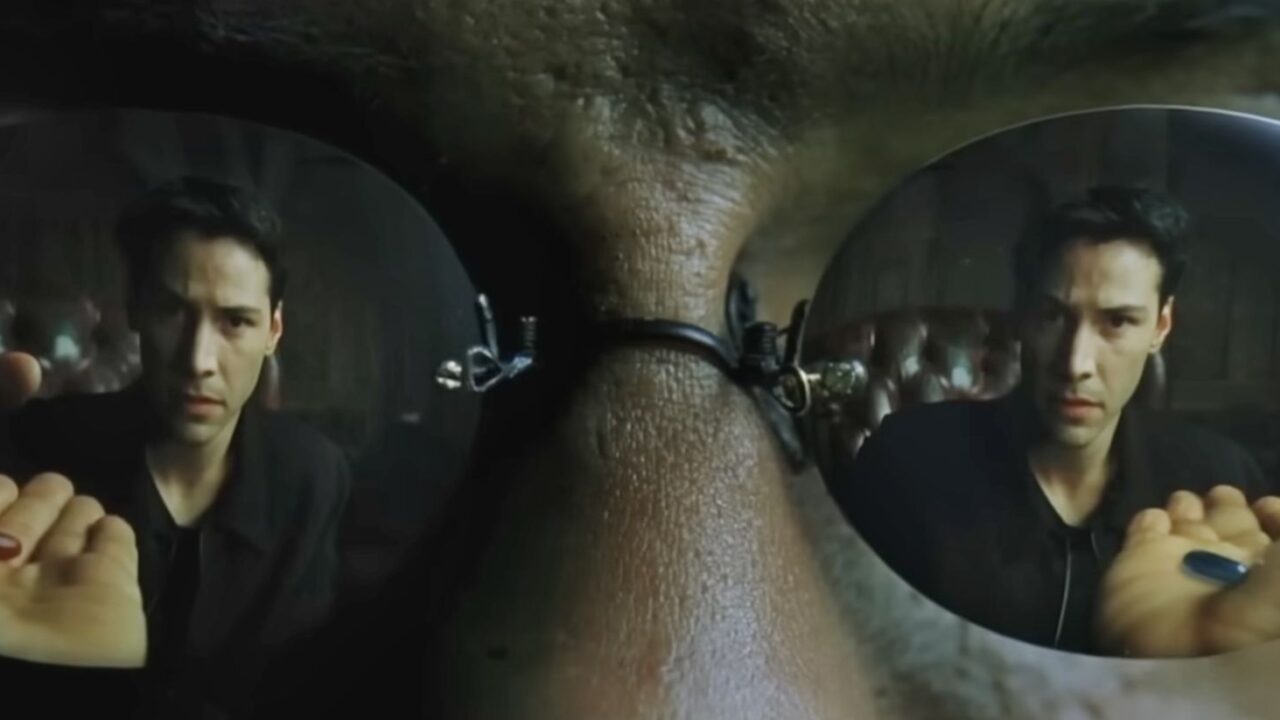25 Years Later, We’re All Trapped in ‘The Matrix’
The 1999 sci-fi classic predicted a world like the one we now live in, where human beings are cut off from one another by technology. But it also reminded us that resistance is possible.

It is a cinematic scene familiar to millions: A man named Morpheus sits across from another man named Neo and informs him that his entire notion of reality is a lie. If Neo wishes to know the truth of human existence, Morpheus says, all he has to do is choose one of two pills. “You take the blue pill—the story ends, you wake up in your bed and believe whatever you want to believe. You take the red pill…and I show you how deep the rabbit hole goes.”
This scene is the turning point in “The Matrix,” the sci-fi classic that was released 25 years ago this month. Of course, Neo chooses the red pill and learns the terrible truth that the advent of artificial intelligence allowed machines to take over the Earth. He believes it is 1999, but in fact it is 2199, and all human beings are perpetually asleep in vats, exploited by their AI masters as a source of energy. The world they think they experience is actually a virtual reality known as “The Matrix.”
Morpheus, played by Laurence Fishburne, has devoted himself to freeing individuals from the Matrix and leading them to a refuge called Zion. He believes that Neo, played by Keanu Reeves, is “the One” destined to liberate humanity.
Directed by the sibling team the Wachowskis, “The Matrix” was a box office hit in 1999 and spawned two sequels in 2003 and another in 2021. It also became an important cultural influence. The term “red-pilled” is now widely used online to describe someone who has grown skeptical of the way political reality is usually depicted.
Read the full essay at The Wall Street Journal [subscription may be required].
The 1999 sci-fi classic predicted a world like the one we now live in, where human beings are cut off from one another by technology. But it also reminded us that resistance is possible.
The 1999 sci-fi classic predicted a world like the one we now live in, where human beings are cut off from one another by technology. But it also reminded us that resistance is possible.

